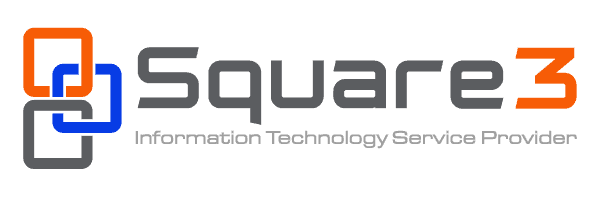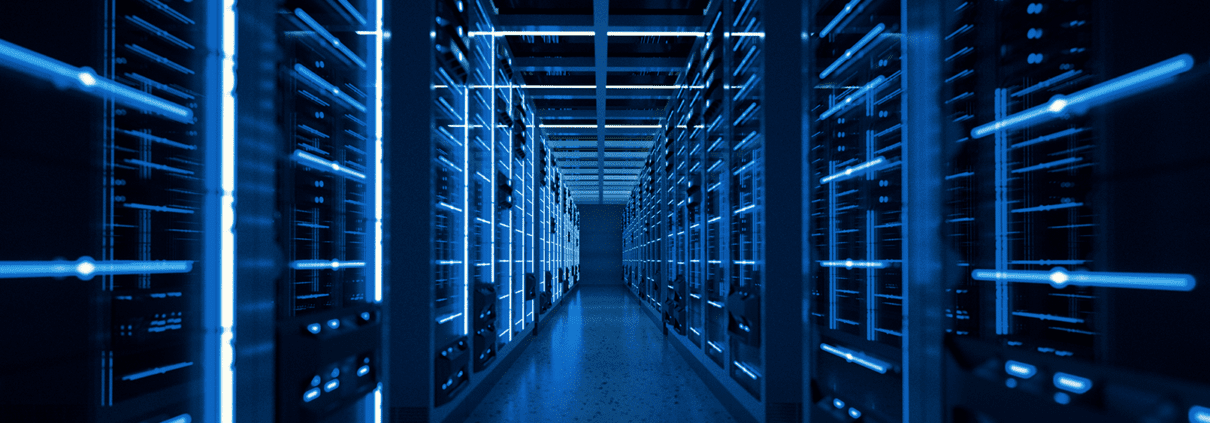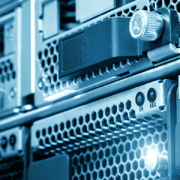Why the cloud is more secure than on premise systems
One of the major appeals of cloud computing is security. A Deloitte survey involving over 500 IT leaders and executives revealed that security is the top driver of cloud migration. The reality is, cyberattacks are becoming more sophisticated and more frequent. As a result, it’s getting harder for companies to handle cybersecurity and data protection in-house.
Cyberattacks pose huge threats to businesses of all sizes. A data breach can cost a business anywhere from hundreds of thousands for SMBs to millions for enterprises, as well as lost future business – 41 percent of consumers say they’d stop buying from a business that fell victim to a cyberattack. Companies with on-premise systems also have to worry about natural disasters, outages, and fires. A down server can lead to downtime, lost data, and lost business.
A data breach can cost a business anywhere from hundreds of thousands for SMBs to millions for enterprises, as well as lost future business – 41 percent of consumers say they’d stop buying from a business that fell victim to a cyberattack.
The cloud offers ways to mitigate risk and protect data. While there are benefits of on-premise systems – such as full control over IT and easier customization – when well-managed, cloud solutions offer more robust security. Let’s look at the specific ways the cloud offers better protection.
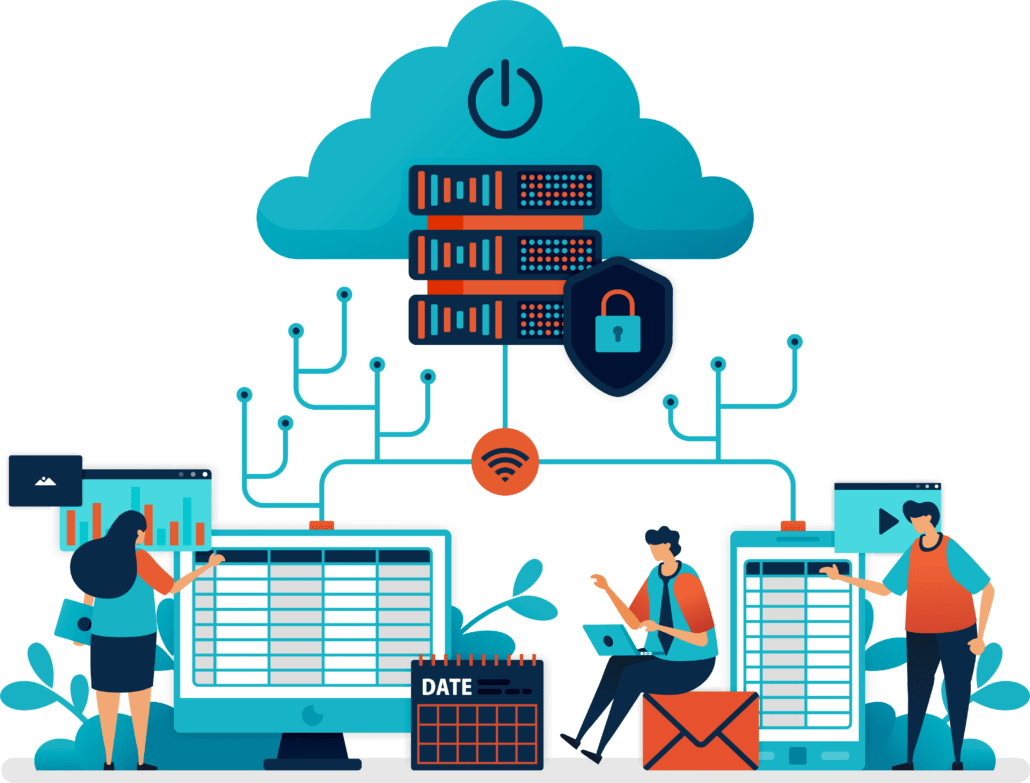
Controlled access
Cloud computing’s greatest strength when it comes to cybersecurity is access control. It’s more difficult to access data in the cloud than data stored on legacy systems when you put the right controls in place. This is because users can count on the cybersecurity measures the provider implements, as well as their own.
Servers are physically separated from servers
It’s easier to control access when your servers are in the cloud. One primary reason for this is the physical separation. When your servers are located off-site in a protected data center, employees who don’t have access and intruders can’t reach your servers. This helps to keep your systems safe from accidental damage and theft.
Advanced cybersecurity measures
Because data centers’ main focus is protecting data, cloud providers have the resources to offer top-notch security. From security cameras and advanced access control technology to the expense of a location that’s earthquake-proof, fire-proof, and virtually impenetrable, protecting a data center isn’t cheap. With cloud solutions, the burden of high-level physical security falls on your cloud provider, not your organization.
Less potential for human error
Hackers are a major problem, but there’s an even larger threat organizations face when it comes to cybersecurity. It’s human error. According to recent research conducted by Kaspersky Lab, as much as 90 percent of data breaches are caused by human errors such as configuration mistakes or employees falling prey to social engineering attacks, not mistakes made by cloud providers. With a reliable cloud provider, strong internal access controls, and cybersecurity awareness training for employees, your organization stands a very good chance of keeping its data safe.
Ability to streamline security with multi-factor authentication
With cloud solutions, your cloud provider is already handling the physical end of data protection. That leaves your organization to leverage effective cybersecurity techniques to protect your data in the cloud. With multi-factor authentication (MFA), one of the most effective tools against cyber threats, cloud users can dramatically decrease their chances of falling victim to hackers. With legacy solutions, it’s harder to implement robust MFA.
A cyber attacker can penetrate your system once they get their hands on compromised user credentials. With MFA, there’s no easy access. A user has to verify their identity before logging in. This extra wall of difficulty can be enough to divert attacks. Hackers are more likely to spend their time going after the many organizations that aren’t as effectively protected – according to Microsoft, only 11 percent of enterprise cloud users have enabled MFA.

Working with a managed service provider
There’s another huge factor that gives cloud users a cybersecurity advantage: managed services. With a managed service provider (MSP), your organization can count on high-level protection conducted by experts. Cloud technologies allow MSPs to virtually access your infrastructure and monitor for threats. This takes some of the stress off of in-house IT teams while enhancing your cybersecurity strategy.
Frequent monitoring and audits
The battle against data loss and cyberattacks is becoming increasingly complex. Digital assets are, for many organizations, extremely valuable. Stolen or compromised data can offer a huge value to hackers as well, which is why cyber attackers are willing to work so hard to break into computer systems and develop more sophisticated attacks.
Your IT staff can only do so much to monitor for threats. They can’t work around the clock and, unless your organization has a huge IT budget, you don’t have the resources to manage frequent monitoring and network audits. This is why so many companies – both SMBs and enterprises – are turning to third-parties for managed security services. An MSP can monitor your network and keep your cloud infrastructure secure.
Annual audits to protect against flaws
In addition to ongoing monitoring and audits, an MSP can take care of annual audits, giving your organization peace of mind that your cloud practices are robust enough for the evolving risk landscape. Complete annual audits are also important to maintaining compliance. On-premise legacy systems aren’t required to go through annual audits. This can be a major problem – without a comprehensive security review, you may not know about flaws in your security system.
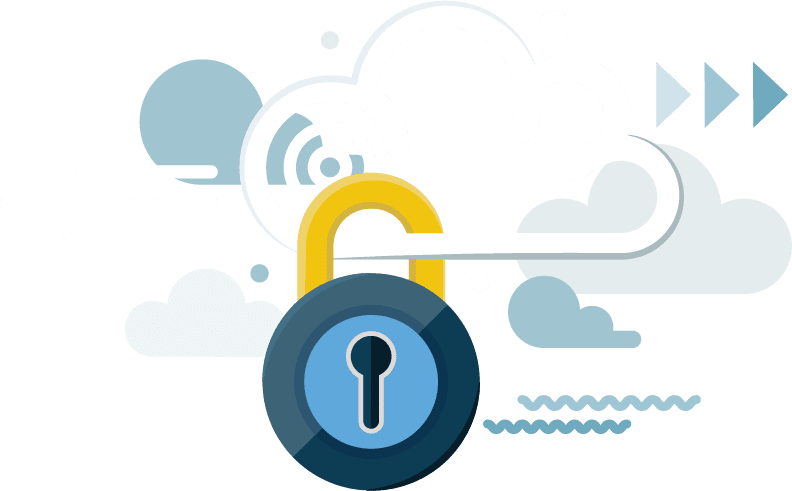
With the cloud, organizations are better protected for the future
Legacy systems are more difficult to safeguard. On-premise servers don’t have the benefits of a cloud provider’s advanced physical security combined with in-house cybersecurity measures. It’s harder to keep them updated and to monitor for threats, making it more likely that gaps in security will arise.
With cloud solutions, your systems are more ready for the future. You can update software, enhance your cybersecurity strategy, and access third-party help more easily, and it’s easier to adapt to changes when you need to. The cloud is empowering businesses of all sizes to thrive in an ever-evolving threat landscape. Contact our team today to find out more about how cloud solutions can help your business stay protected today and in the future.
